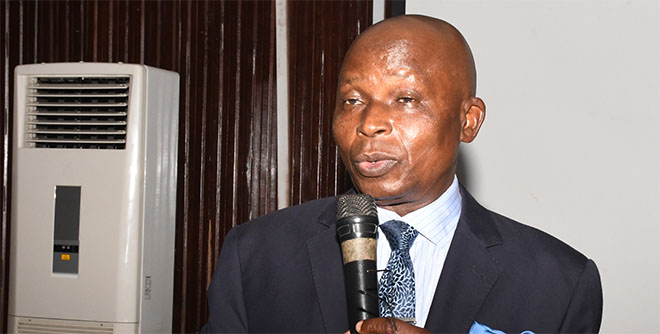Attorney General Bans Police from Parading Crime Suspects
by Admin ·
 The Attorney General of the Federation and Minister of Justice, Lateef Fagbemi (SAN), has issued a directive banning the Nigeria Police Force from parading suspects in public. The move, which is being hailed by legal and human rights experts, aims to protect the presumption of innocence for individuals accused of crimes.
The Attorney General of the Federation and Minister of Justice, Lateef Fagbemi (SAN), has issued a directive banning the Nigeria Police Force from parading suspects in public. The move, which is being hailed by legal and human rights experts, aims to protect the presumption of innocence for individuals accused of crimes.
Senior police officers contacted within the Federal Capital Territory (FCT) and Lagos State Police Command confirmed that they had been informed of the directive, which was reportedly issued earlier this month. One officer shared, “Yes, we have been asked to stop parading suspects.” While the Force Public Relations Officer, Muyiwa Adejobi, acknowledged the development, he stated that an official statement from the police would be issued at an appropriate time.
The practice of parading suspects, which often involves displaying them before the media, has been widely criticized for violating the rights of accused individuals. Human rights lawyer, Femi Falana (SAN), argued that the practice was illegal and a breach of the fundamental right to the presumption of innocence guaranteed by Nigeria’s Constitution and the African Charter on Human and Peoples Rights.
“It is a gross violation of the fundamental right of criminal suspects to the presumption of innocence. Parading only lowly placed suspects, while politically exposed individuals are spared, is discriminatory,” Falana stated, adding that several legal judgments had declared the practice illegal.
Legal Experts Applaud the Ban on Public Suspect Displays
Renowned human rights lawyer, Chief Mike Ozekhome (SAN), also expressed support for the ban, describing the practice as both unnecessary and unjust. Ozekhome highlighted the long-term reputational damage caused to individuals who are paraded before the media and later found innocent. He called on the current Inspector General of Police to ensure strict compliance with the directive.
“I implore the Inspector General to end the practice of parading suspects. When someone is paraded and later exonerated, the damage to their reputation often remains irreversible,” Ozekhome emphasized. He further explained that there is no need for such public displays if the police have a solid case, and that suspects should be taken to court rather than subjected to public shaming.
A Shift in Nigerian Law Enforcement Practices
The new directive from the Attorney General marks a significant shift in Nigeria’s law enforcement practices. The ban comes after years of criticism from both the legal community and human rights organizations, who have argued that public parades undermine the principles of justice and fairness. In light of this, legal experts have called for more measures to ensure the protection of citizens’ rights and prevent unjust media exposure before suspects are tried in court.
As the country moves towards a more progressive approach to criminal justice, the ban on parading suspects represents a step toward respecting the dignity and rights of all individuals, regardless of the nature of the charges against them.













